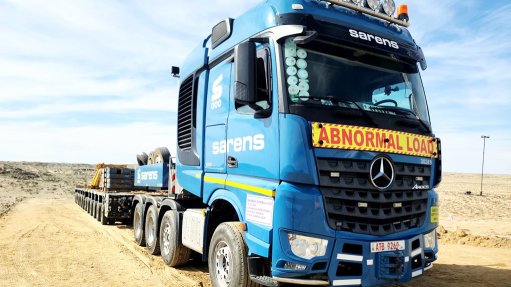Remembering Kenneth Kaunda
At the time of writing, Africa was in mourning, following the breaking of the news that Kenneth Kaunda, Zambia’s President from 1964 to 1991, had breathed his last in a Lusaka military hospital. Note: on African soil, unlike the Robert Mugabes of this world, who die thousands of kilometres away from home, or the Muhammadu Buharis, who make a beeline for hospitals in Europe at the slightest hint of indisposition.
It’s unlikely younger South Africans’ recollection of the man who was affectionately known as KK will extend beyond his attendance at Nelson Mandela’s funeral, in Qunu, in December 2013. President Cyril Ramaphosa, then number two in the African National Congress (ANC) but not yet in government, was the master of ceremonies, and when he called KK to the podium, the elder Stateman sprinted from his seat, as if to demonstrate that, despite being a few months shy of 90, he was still in good shape.
KK had a lot to say about the life and times of Mandela, and Ramaphosa, worried about time, had to politely ask him to conclude his speech. Good-naturedly, KK ‘admonished’ Ramaphosa, whom he referred to as “this young man”, for daring to order him to stop speaking. Didn’t Ramaphosa know that he had fought against the Boers during apartheid, KK queried. With that, he dashed back to his seat. In spite of themselves, the gathered mourners broke into roaring laughter.
To Zambians, KK will be remembered as the independence leader who succeeded in uniting their motley nation of more than 70 ethnic groupings and lived true to his ‘One Zambia, One Nation’ credo till death.
For those in the broader Southern African neck of the woods, his support for the struggle for independence in Zimbabwe (formerly Southern Rhodesia and later simply Rhodesia), South Africa, Namibia and Angola will not easily dissipate from memory. This explains why nearly all neighbouring countries declared multiple days of mourning for the fallen former leader.
I have read a few obituaries where the writers drew attention to KK’s suppression of opposition when he introduced one party-ism in the 1970s and to his nationalisation of the mines on the Copperbelt, with the latter move having had disastrous economic consequences. In fact, it was worsening economic ills – which found expression in failure to import essentials like food, for one – that compelled KK to give in to calls for the reintroduction of multiparty politics in 1990. He performed dismally in the 1991 elections but bowed out gracefully.
His foray into the one-party system and the nationalisation of the copper mines should be understood in their proper context: they were political fads of the time. Either de facto or de jure, we had several one-party States in our region. In Malawi, Kamuzu Banda’s pernicious Malawi Congress Party reigned supreme, and ditto Chama Cha Mapinduzi in Tanzania and the Kenyan African National Union in Kenya. Later, we had Frelimo in Mozambique and MPLA in Angola. As for the nationalisation of the mines, even Mandela’s ANC preached the same gospel for a very long time. So, one cannot honestly put these two unpalatable choices that KK made down to wicked intentions.
The KK I knew was a unifier, a pan-Africanist and a man who put the national interest ahead of his own. He could easily have refused to let go of power when he was trounced in the 1991 elections. We saw Mugabe do that exact thing in 2008.
I will also remember KK as an elder Stateman who was largely ignored by African leaders once he left office. The continent has had a few conflicts in the past few decades. Why didn’t they rope him in as a mediator? Unbelievably, they had Jacob Zuma as the mediator in Burundi in 2000, while KK was twiddling his fingers in Lusaka, despite his stature on the continent.
Article Enquiry
Email Article
Save Article
Feedback
To advertise email advertising@creamermedia.co.za or click here
Announcements
What's On
Subscribe to improve your user experience...
Option 1 (equivalent of R125 a month):
Receive a weekly copy of Creamer Media's Engineering News & Mining Weekly magazine
(print copy for those in South Africa and e-magazine for those outside of South Africa)
Receive daily email newsletters
Access to full search results
Access archive of magazine back copies
Access to Projects in Progress
Access to ONE Research Report of your choice in PDF format
Option 2 (equivalent of R375 a month):
All benefits from Option 1
PLUS
Access to Creamer Media's Research Channel Africa for ALL Research Reports, in PDF format, on various industrial and mining sectors
including Electricity; Water; Energy Transition; Hydrogen; Roads, Rail and Ports; Coal; Gold; Platinum; Battery Metals; etc.
Already a subscriber?
Forgotten your password?
Receive weekly copy of Creamer Media's Engineering News & Mining Weekly magazine (print copy for those in South Africa and e-magazine for those outside of South Africa)
➕
Recieve daily email newsletters
➕
Access to full search results
➕
Access archive of magazine back copies
➕
Access to Projects in Progress
➕
Access to ONE Research Report of your choice in PDF format
RESEARCH CHANNEL AFRICA
R4500 (equivalent of R375 a month)
SUBSCRIBEAll benefits from Option 1
➕
Access to Creamer Media's Research Channel Africa for ALL Research Reports on various industrial and mining sectors, in PDF format, including on:
Electricity
➕
Water
➕
Energy Transition
➕
Hydrogen
➕
Roads, Rail and Ports
➕
Coal
➕
Gold
➕
Platinum
➕
Battery Metals
➕
etc.
Receive all benefits from Option 1 or Option 2 delivered to numerous people at your company
➕
Multiple User names and Passwords for simultaneous log-ins
➕
Intranet integration access to all in your organisation

















